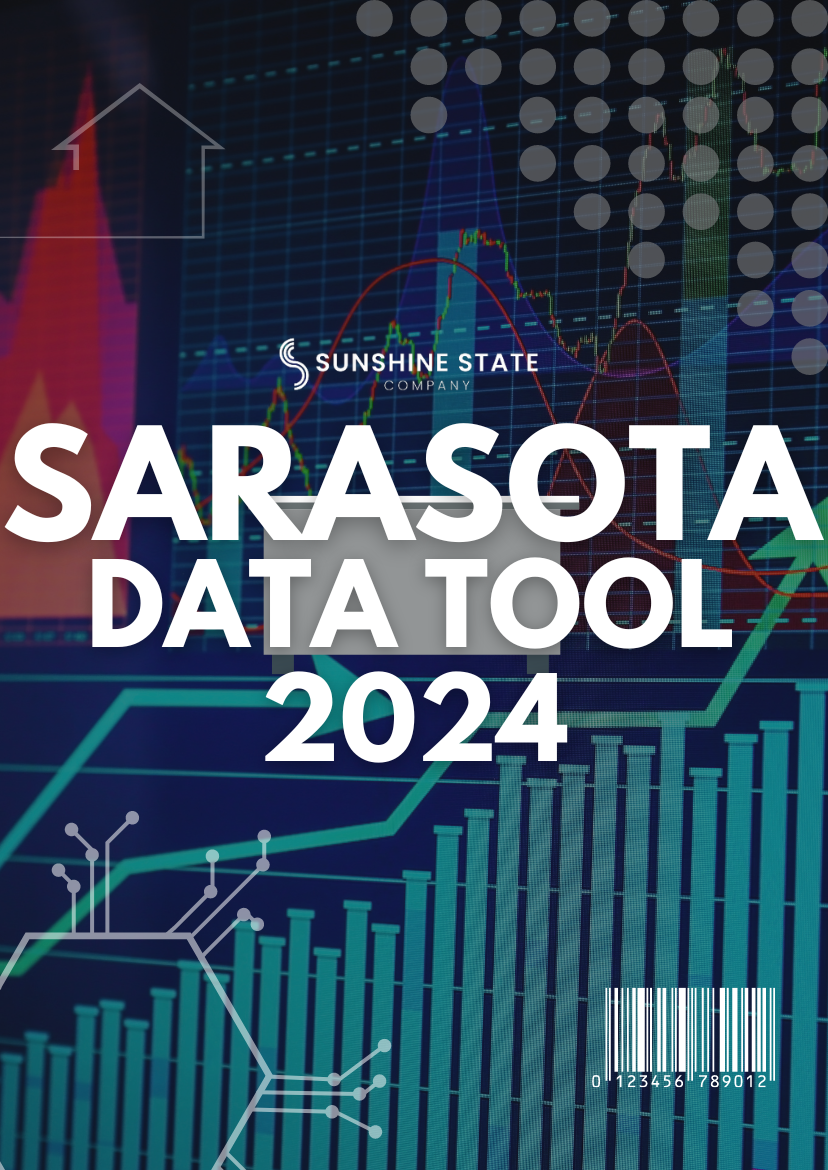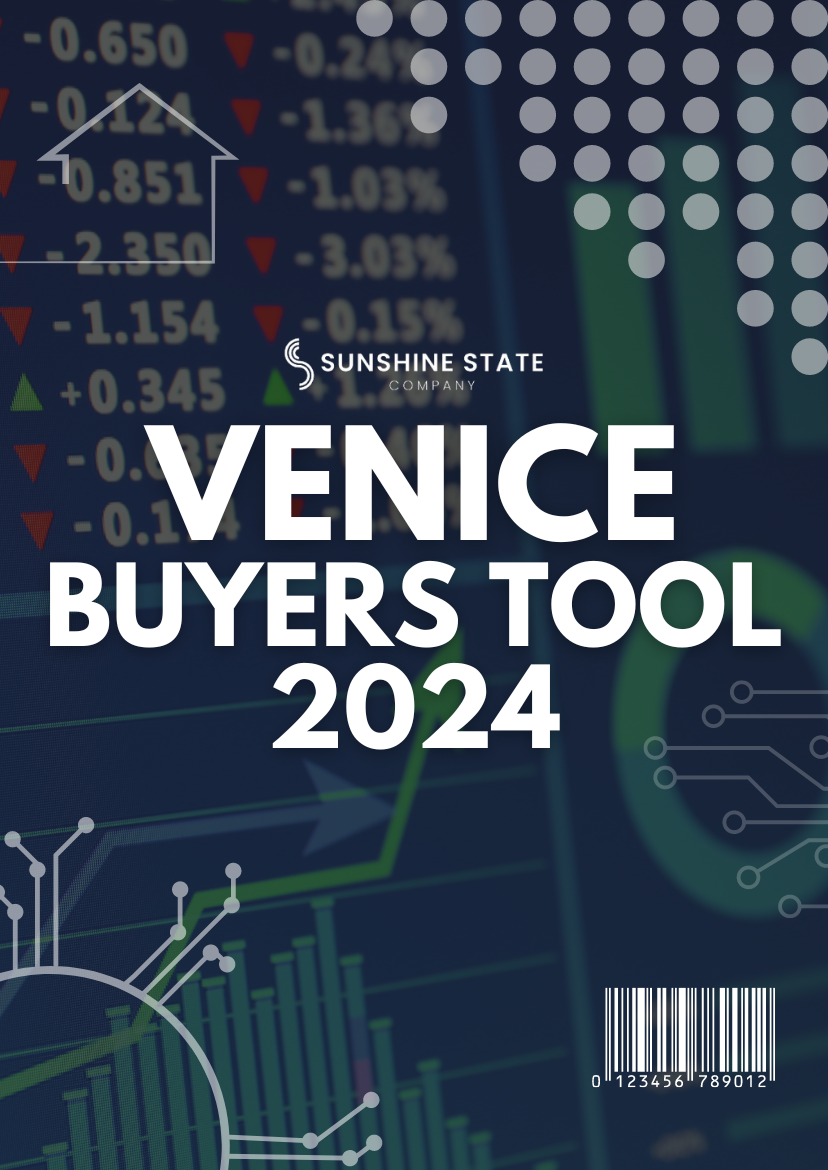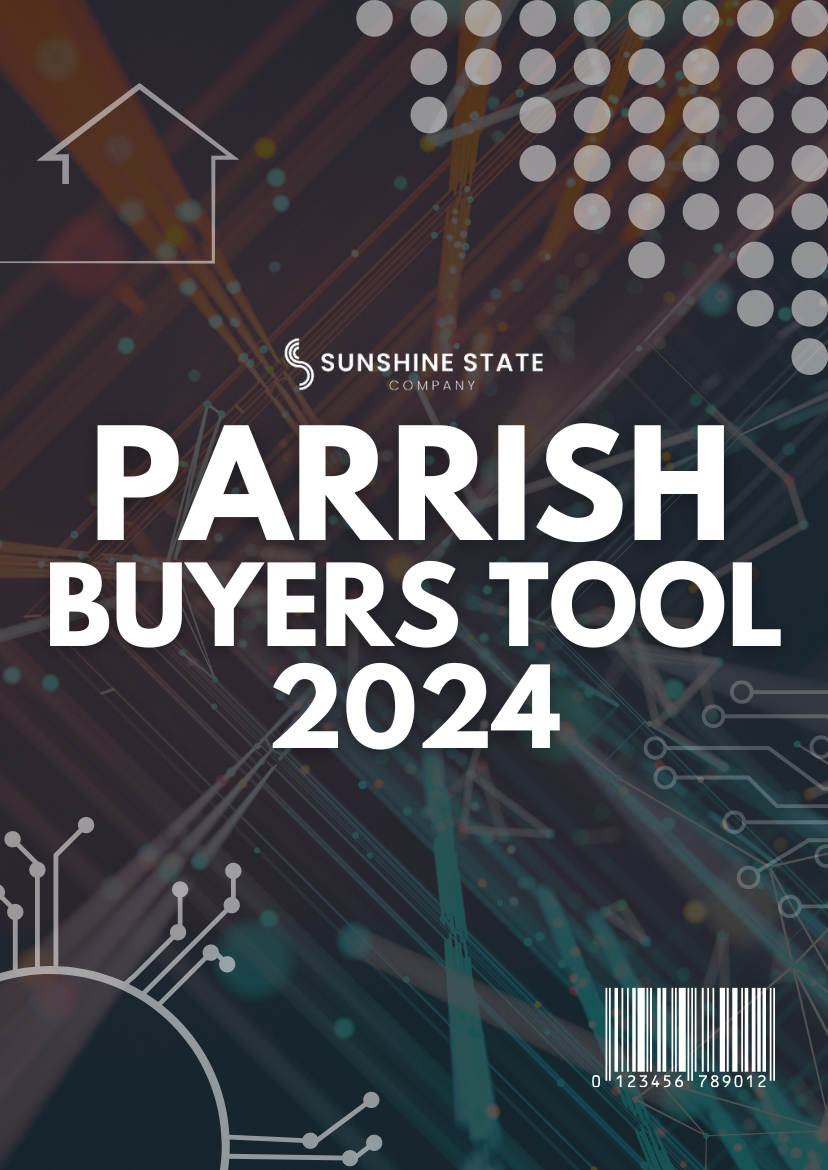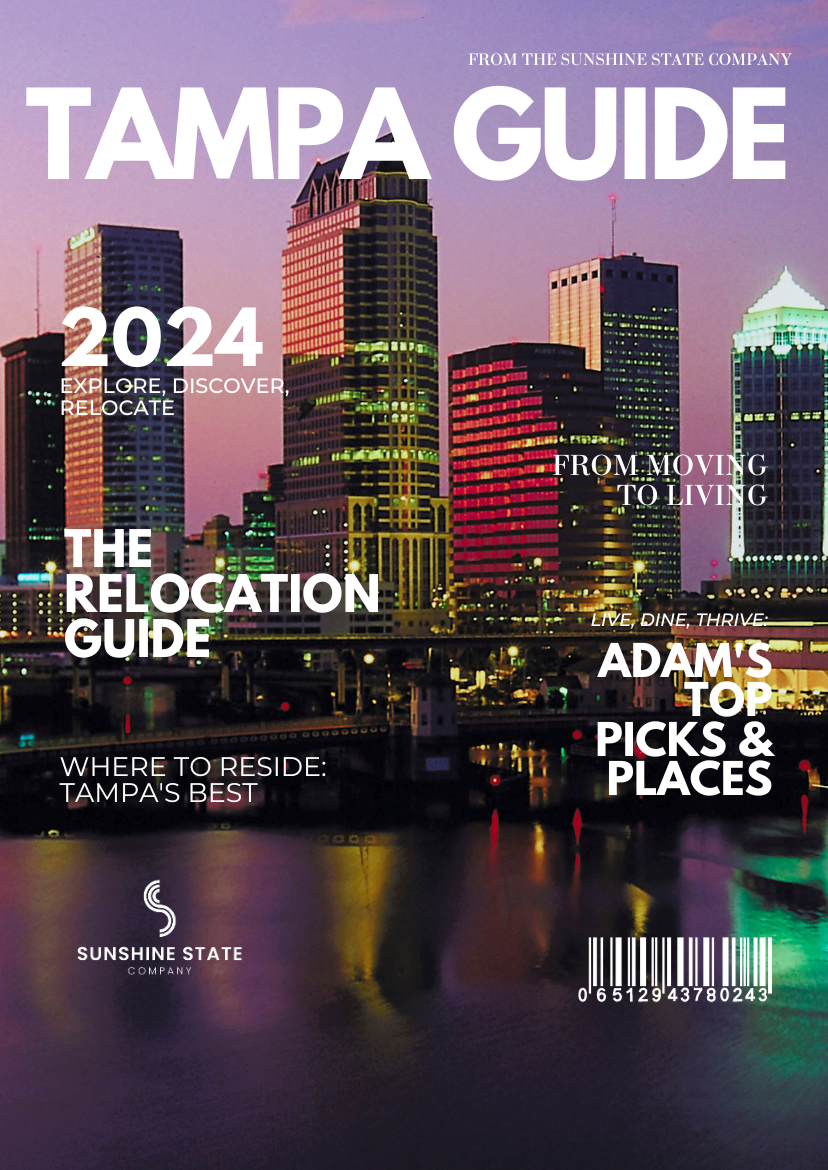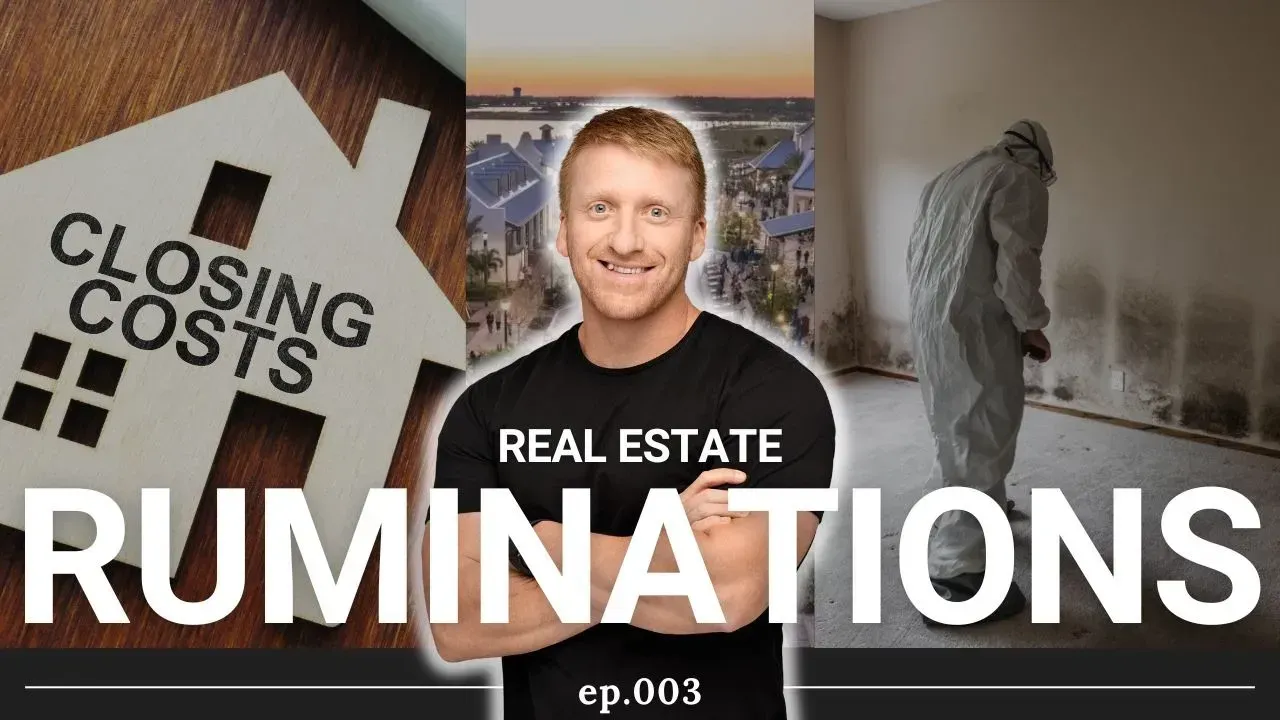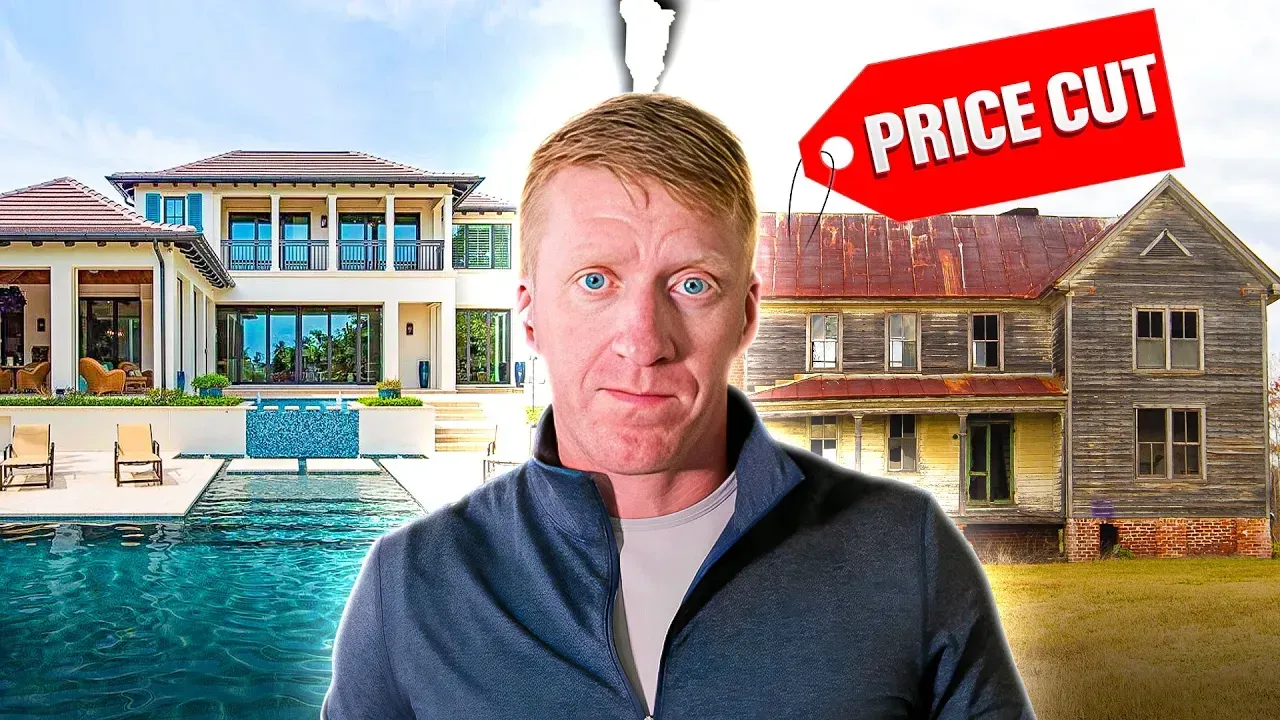This blog article is derived directly from our YouTube video (featured at the bottom)
Today, I am breaking down whether should you buy a house in 2023 in Sarasota, Florida. We're talking about new construction, resale, hedging, risk mitigation, quality of life, and everything in between. I hope this adds you a ton of value on the top end.
- New Home or Resale?
- Where Are You Moving?
- How Much Does Quality of Life Matter?
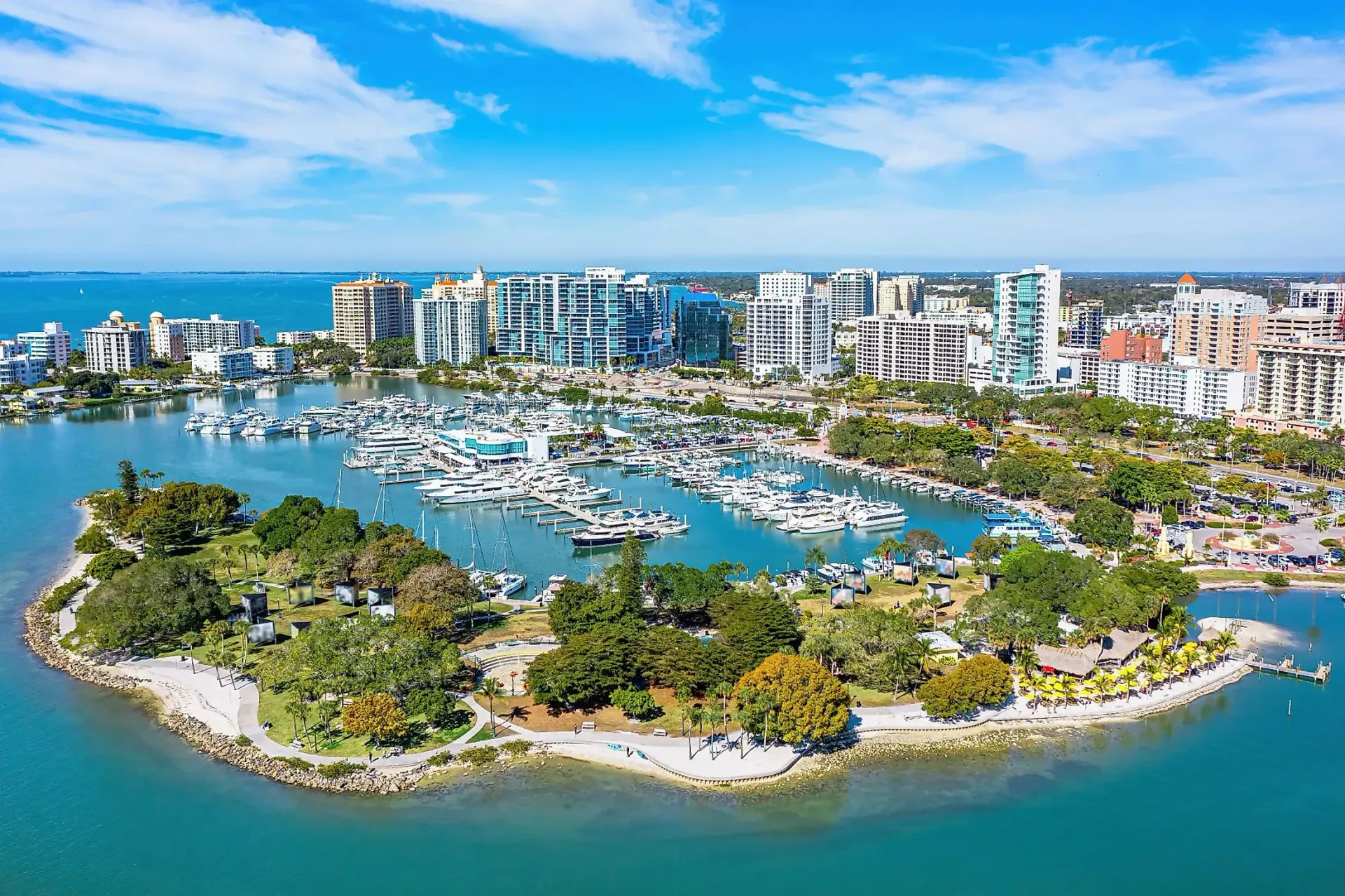
New Home or Resale?
One of the first questions I'd probably ask myself in this scenario is, "Am I targeting a new construction home in 2023 or a resale home?" Because economics and logistics are going to vary quite a bit when it comes to this different situation, basically. So if we talk about new construction just for a minute, what you have to look at is, realistically, it's taking about 14 to 18 months to build these homes right now. So if you just say logistics first and you go to sign today, you're talking, that's maybe guaranteeing yourself a 2024. But as time passes, this might be a 2025 or 2026 conversation. So just purely on that timeline alone, how much does that matter? And then if we go more on the economic side, which is where my heart kind of leans most of the time, is a simple fact is you were making a decision relatively early and trying to see, "Do I know enough information to be okay with that decision if in nine months from now, something happens that altered the way I felt about this deal and I still have nine months to go on the contract without any recourse or very little recourse?" Because that's typically the way these contracts are written. Now, it's give and take with that, right?
So two years ago, when builders let someone sign a home and these folks that in certain situations got these huge equity positions from this crazy one-time market, when they signed a contract, there was a lot of times where the builder would've loved to go back and be like, "Hey, nevermind. This house should be way more expensive than that." But there's no price escalation clauses for the most part in the contract. So the builder can't necessarily raise it in most contracts, right? This isn't a across the board, but if something changes on their end, but also the same reason that typically if they lower your neighbor's house next to your house while you're six months into a build, you can't go back and be like, "I want the same price." I've seen shades of gray with all this kind of stuff.
But all that to say, you basically have to make a decision so early that you almost need to get yourself around a no-regrets model of what information do I need to know. And the other thing I might do is I might actually dive into the worst-case scenario. You built a house, your four months into a contract and they're still building it, right, and you got a while to go. But then the house three doors down, the builder comes and they list that home for $80K, and you look at it and you're like, "That's my same house." And you go to them and you say, "What can we do with this situation? This is my home." And they're like, "It is what it is. We didn't know at the time, they're working off a margin." Obviously, they would try to get more money if they could. They don't feel like they could, and maybe they'll throw you a bone and give you $15K or give you incentives to something. But you can't really do anything because contractually, it's very stern. So then, I would maybe look at your personal situation. Aside from anything that's happening, the noise around, because most likely those one or two one-off comps aren't going to kill your equity position. It's looking at your particular situation and what are the actual negatives, because you got to look at when are you going to sell? Are you actually in the red when you close this just because of that one home?
What about the other million of comps around the area? Are you actually in the red? Also, when are you going to sell the home? Do you actually think it's not going to be worth what you need by the time you sell? I get you could've made more money, but if we knew all that information in advance, we'd all have a trillion dollars, right? So I get no one wants to get screwed, but this is a volatile market anyway, so you got to kind of balance that. You could get down to the economics of it pretty minute. You could find out the actual financials of interest rate changes and equity position changes and all that kind of stuff.
The other big thing to look at, because this is a big balance of juxtaposition, is the cost of waiting to sign. Say you don't want to be in this situation I'm describing, and you wait and you're like, "I'm hearing all this stuff about price drops." So by waiting, what is the gain and what's the risk to you? Now, I think, thankfully right now, I don't know how much risk you would have in actual price differences by waiting, but I don't know how much gain you have either. So if you wait, what if you don't get this windfall of $150,000 decreased price of a home? What if it's 10 to 15 to 20? Then was it worth it by losing the time to wait to start your build? I don't know. I mean, I'm just asking these questions, devil's advocate.
Also, the big thing here is this is a big pot of money. What you gained on this side, did you lose in your home state by paying what you're paying to live in your current home state or whatever your financial situation is there, did that net out in a way that benefited you enough to go through another winner or whatever this may be? So I'd really look at the whole end of the spectrum. This is with running homes in between, interims, liquidating a home, buying a new one, building versus resale. All this stuff comes into play. I'd really look at that hard. And just to bring that all full circle, if none of what I just said sounded remotely attractive, or you're just not romantic about new construction or you need a quicker timeline, resale homes would inherently give you much more control in general. Just being able to wait, wait, wait, wait, wait, wait nine months and then buy home and be in there on month 10, it would be quicker than any build anyway. And also, just like when you pick a price and you negotiate, you at least know that at that time, within a 30-day gap, I knew all the information that I could've known. But resale would be an alternative if the volatility of a too long of a gap of floating liquidity is really an issue, then you could just wait and get real picky about resale homes.

Where Are You Moving?
A second major question I'd ask myself on this topic is where am I actually moving, which metro? Because if you ask me, "Should I buy a home in 2023?" And a lot of my problem with people making a blanket statement about definitely no or definitely yes, is no, I want to buy a home everywhere, but everywhere's not equal. Every city is not equal. There's inherently more safety in certain cities because of a myriad of different economic reasons. This is all about hedging and risk mitigating to me. Some of the issues with a really price-competitive market or a seller's market is that simply maybe some of the safest cities to move to for long-term volatility are also the ones everybody else wants to move to.
So the same things that create a struggle to try to buy a home are the same things that might create safety in your equity position over the long term, right? So if you were in the cheapest city in Florida, then there might be reasons for that being a factor. It could be geography or industrial commercial viability. If they shot up in price at one point, what would be the chance that it sustains that pace or that enough people flood into the market to kind of keep it that level of competitiveness?
So you could work through additional exercises. Is the market I'm targeting, do I think it's really on an upswing? Do I think it's on a downswing? Do I think this is still going to be a popular city but it went up so fast that it has room to kind of come down just a bit? Is there an opportunity there? Something you could look at. You could also look at, maybe you're more on a macro conversation if you're not as deep as targeting one city yet. So then you could look at what cities or what metros in the state of Florida have a better chance of doing well, and go by size or quality of life or whatever.
So say you're looking at big cities, you came from LA or New York or Seattle or something. So you can't go small. So you can look at, is Tampa better than Miami and Jacksonville because, or Orlando, because it's coastal, but it's on the Gulf Coast. It's more central to the others and it's not on a fringe, but it still, it has beach parts like Pinellas County, and it has the full-on metro parts. It's not so big that it's overwhelming. Maybe it's at a price position where it's 5 to 10 years behind Miami as far as the escalation of its popularity. So if you had to pick one, is it better? Is Sarasota better than Boca Raton for similar reasons where it's much more of a play first, work second town, it's not as industrial as Tampa? But if you picked amongst other ones, even a Naples or the Panhandle versus Sarasota, is the central nature of it being like, if you had to go to one place, is it more viable? And then also, at a simple factor, either you're down further in your search or maybe you're like, "I'm not going to pick any city that just numbers-wise works for me." Maybe you want to live in a certain place.
So then, you could go within that place and look at micro opportunities. In Tampa Bay, right, is Wesley Chapel an emerging suburb? So you're still within the Tampa Bay region. Wesley Chapel versus [inaudible 00:08:33] or Brandon. If you're in Sarasota, do you go after a Wellen Park being less, or a Parrish being less mature than a Lakewood Ranch? That still doesn't change the metro, but it changes how you can navigate within it. So that's just a couple of things I'd work through on topic number two.

How Much Does Quality of Life Matter?
The third question I want to introduce real briefly in this arena is how much does the quality of life matter versus the pure economics of the conversation to you? And I'm definitely more of a numbers guy by trade a lot, so I'm always down that angle. But the people we talk to day in and day out, I'm constantly reminded how big of a deal this is. I bet you could literally place a cost or a risk percentage on the landed cost of your not being where you want to be for an extended period of time and how much that matters.
I was reminded by a colleague of mine yesterday, he's a colleague of mine now but he did relocate from Canada with me in this kind of nature through YouTube. And he was reminding me about the conversation of intentionality. This is something that I used to talk about all the time about, I used to tell him, because I'm from here, that I could just really severely notice that everyone moving to one place that was their dream. It's so clear to me where the people that move might not realize it, but me as an outsider, it's so clear to me how pumped they are to be here, how much they seek community, how excited they are every day that they're like, "I can't believe I'm still doing this."
People that are a year removed are looking at the winter back home and being like, "I can't believe this is my life now." The ripple and six-degree effect that has on everyone else around them. And then in certain metros in Florida, it's a melting pot so much that the majority of the people are in that scenario, and it really is bleeding to the community. It's such an optimistic view. And you could run down lanes, so I think that matters a lot. And you could also run down lanes of, in your home state, is there a politically volatile environment that you disagree with? How much is that weighing on you? What's the cost of one or two more harsh winters to you? I'm not that old and my old bones feel, my hamstring starts to hurt when it's like 60 degrees outside. So what's the cost to you of dealing with another freaking winter?
And then you got daily commutes and traffic and maybe you live in a big metro, and is it healthy to be around that many people all the time? What is the quality of life nature of it? And if you're waiting for a windfall, whether it's a psychological win... A lot of times it comes down to, again, I'm not trying to be non-sympathetic, but a lot of times, the bad stuff that happens with the price change, the financial ramifications aren't near as bad as the feeling like you got taken for a ride aspect of it. So I would just look at them, actually, if you were here and the dust settled and you're three months removed from anything happening, what mattered more? The quality of life or the financial win or loss there when it comes to that? So I would at least weigh that in the conversation, probably more than I would've considered in the past.
Categories
Free Relocation Guides
The YouTube Channel
Watch The Latest With Adam Hancock
Each week I'll give my view on everything from the best neighborhoods around Southwest Florida and new construction communities.

One of the most unique things about our brokerage is how we view the real estate experience!
When you work with The Sunshine State Co team you get Adam, the broker, & your own dedicated agent. This formula provides clients with a full-time market researcher (aka - the best info possible), read more...
LIke Free stuff?
Florida guides, tools & more!
The absolute SMARTEST way to relocate and/or invest in the entire state of Florida. We create an abundance of original, value-based and economics-first resources to equip our clients for the real estate market ahead. Smarter buyers are more savvy buyers!
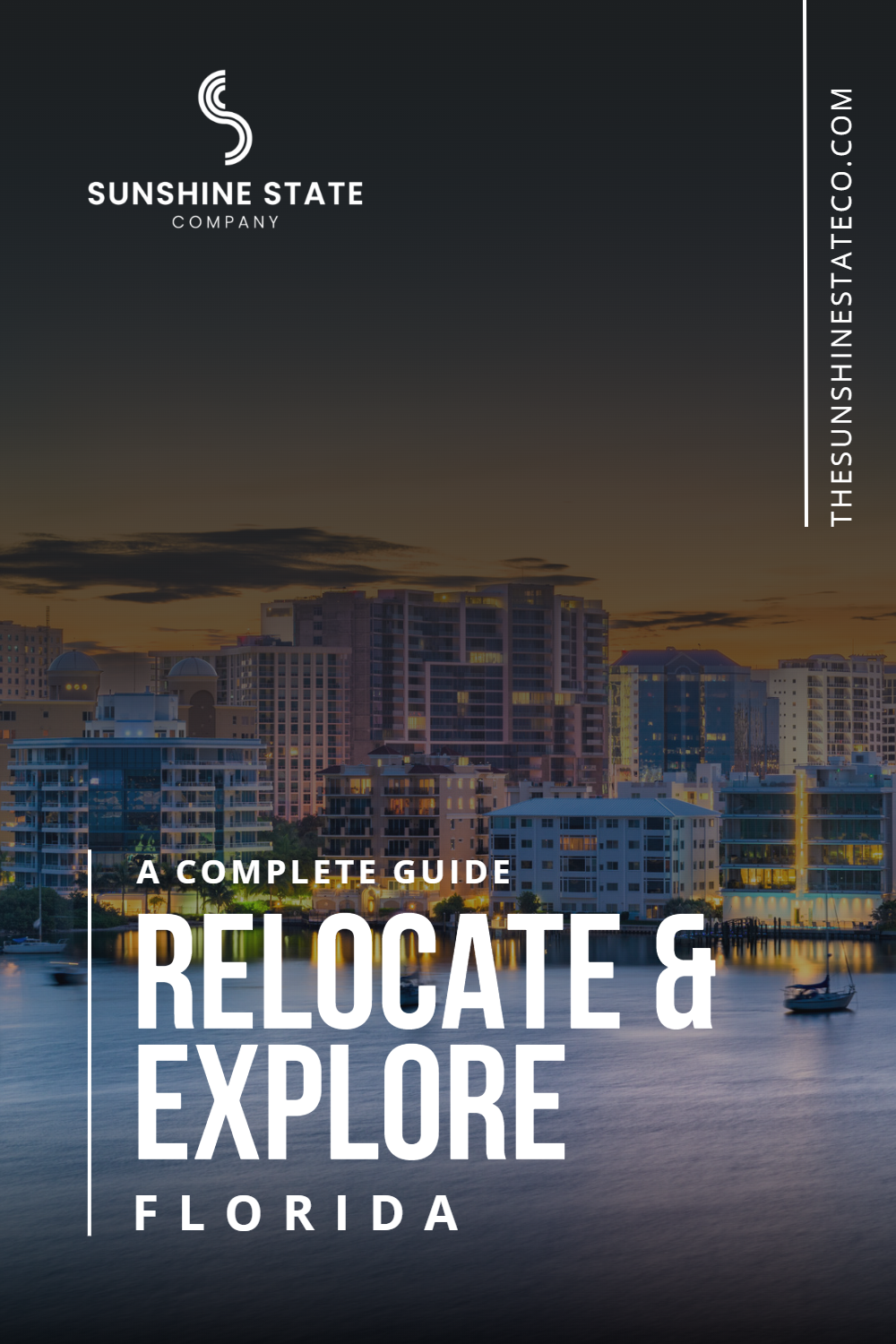
Sunshine State Company
Ready to take the next step?
Let's schedule a meting! During this initial consultation, we'll learn more about your situation and what you're seeking in a home. We'll provide advice and address any concerns you may have, in order to determine the best approach to achieving your goals. By the end of our conversation, we'll have a solid plan of action and next steps for moving forward.
